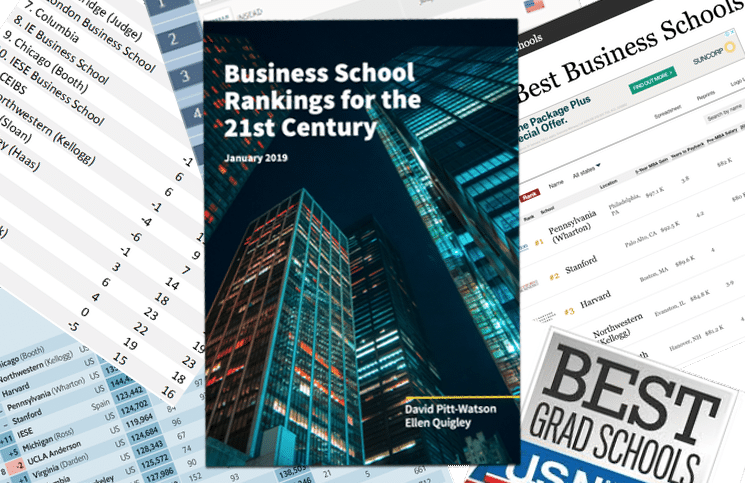
A major new study on the scope and power of MBA ranking systems has recommended drastically reducing the influence of graduate salaries in determining rankings, while increasing the importance of criteria that measure environmental, social and governance factors.
The report, Business School Rankings for the 21st Century, was released in Davos this week.
Business school rankings are produced by organisations such as the Financial Times, the Economist, US News, Business Week, and Forbes. Many students use the rankings as a key part of the decision-making process for deciding which school to attend.
Because of their influence many business schools build programs and outcomes around simply improving or maintaining their rankings.
The rankings have been criticised for overemphasising graduate salaries, penalising business schools who educate graduates who work for non-profits, and not properly taking into account sustainability, ethics, or teaching quality.
The report, which was written under the aegis of the United Nations Global Compact and funded by Aviva Investors, specifically suggests eliminating entirely, or reducing the weight of, the salary differential measure, which is viewed as particularly problematic.
Dr Steve Waygood, Chief Responsible Investment Officer at Aviva Investors said business schools were failing society if they didn’t teach their students about the importance of sustainability and they fail the businesses these students will lead in the future.
“We’ve commissioned this report on business school rankings because we want to see race to the top on sustainability issues in academia,” he said.
Report co-author David Pitt-Watson said it was important that business school performance was measured.
“But there is a real concern that the current measures we use need to be rethought if our schools are to truly develop future leaders. This report aims to catalyse and support that process.”
Andrew Jack, Global Education Editor, Financial Times said rankings were very important to the FT as part of their editorial commitment to business school students and faculty.
“We welcome debate around their calculation, have already modified ours to include factors such as social responsibility, and are open to new ideas on ways to improve them further. This report is a good step in that direction.”
President and CEO of GMAC, a global association of business schools Sangeet Chowfla said the report served as a call-to-arms to think about how we formulate business school rankings, with a keen eye on how they impact candidates thinking about pursuing an advanced business degree.
“Business education will greatly benefit from increased dialogue between business schools and ranking agencies with an objective to provide clearer, more actionable, information, resulting in better school selection decisions by candidates and more diverse classrooms in schools,” he said.
“Race To The Top”
The report says many of the rankings criteria currently in use were developed years or decades ago, and use simple measures such as salary and salary progression. Less emphasis has been placed on what is taught
and learned at the schools.
This paper argues that, given the influence of the ranking publications, it is time for a review of the way they evaluate business education.
“Central to any initiative to inspire businesses towards addressing the challenges of the 21st century must be a consideration of how students are taught in business schools,” the report said.
“Rankings could be envisioned as a mechanism for encouraging a “race to the top” in promoting business education that equips the leaders of the future with forward-looking knowledge and skills, which they arguably already do in many ways. “
However, a number of observers suggested that these benchmarks have unintentionally changed behaviour as business schools compete for higher rankings.
“This behaviour change is precisely what one might predict, but the race encouraged by ranking publications may not always be “to the top” according to the factors that contribute to a sustainable, inclusive economy.”









